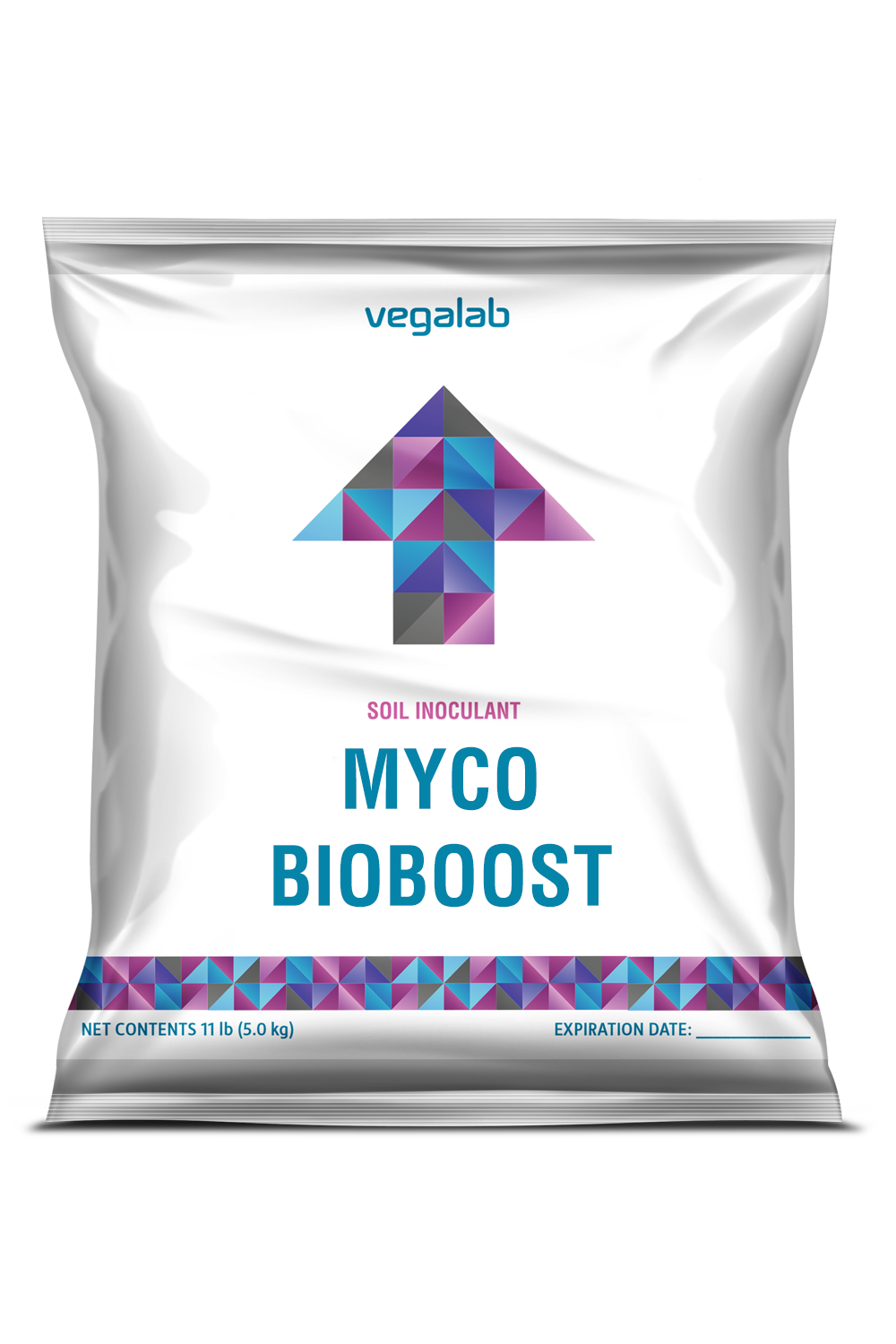/ Agriculture / Products / Soil Inoculants / Myco BioBoost
Myco BioBoost
Mycorrhizal Soil Inoculant
Myco BioBoost is a highly concentrated mycorrhizal fungus used in agriculture and horticulture as a soil inoculant. It is a water-soluble powder which can be applied via soil irrigation and directly into the root zone, making it a quickly effective and easily absorbed inoculant. Myco BioBoost has been tested in silty, sandy, peat, and clay with spectacular results.
Effective, easy to use formula
Natural and organic
Non-toxic and biocompatible
Safe for the environment
Efficacy
• Enhances phosphorus intake
• Stimulates root growth; thereby aiding in crop health
• Produces its own food from plant waste
• Improves soil properties, such as soil aggregation due to hyphae
• Provides essential elements for crop growth
Application
Myco BioBoost can be applied to the soil by drip irrigation or soil drench. For drip irrigation, dilute 4.5 – 9.0 g (1-2 Tsp.) of product per 1 Gallon (1 Gal.) of water. For soil drench, dilute 4.5 g (1 Tsp.) of product per 1 Gallon (1 Gal.) of water. Irrigate before & after planting to promote active root development of crops. Use 14.3 oz. of product per Acre of application. Do not apply prior to excessive rains, since this may reduce product effectiveness. Avoid application of phosphorus and fungicides during the first two weeks after application.
Active Ingredients
Myco BioBoost uses concentrated Rhizophagus irregularis (formerly known as Glomus intraradicies), an arbuscular mycorrhizal fungus, to properly promote root growth and provide protection in the rhizosphere.
Safety & Environmental Info
Best land management practices should be used at all times with any fertilizer; this material should be prevented from entering public or private water supplies(including wells) and any lake, stream, or river. This product is made from naturally derived ingredients and is non-toxic.
Mode of Action
Mycorrhizae symbiotically bond to the roots, then grow on and expand the roots overall surface area, thus increasing the root system’s ability to hold more water and nutrients. This protective coating of beneficial fungi shields the root zone from pathogens and feeds off of the starch exudates excreted from the plant’s roots. In exchange, the mycorrhizal colony provides a bio-available phosphorus plant food. Rhizophagus irregularis colonization tends to peak earlier than many other fungi in the Glomus genus. It provides extensive hyphal networking and intense intraradicalspores associated with older roots of host plants. Rhizophagus irregularis colonizes new plants by means of spores, hyphae or fragments of roots colonized by the fungus. It is important to know that most cultivated plants form mycorrhizal symbiotic relationships, but there are a few plants that do not and will not benefit from soil inoculation. Examples of such plants are: all plants from the Brassica family (Cabbage, Kale, Mustard, etc.), Beets, Blueberries, Cranberries, Orchids, Rhododendrons, Sedges, and Spinach.
Directions for Use
| Crop Name | Mix Rate | Area Application | Timing & Frequency |
|---|---|---|---|
| All crops | 4.5 g/ 1 gal 1.0 lb/ 100 gal |
9.3 g/ 1,000 sqf 14.3 oz/ Acre 2.2 lbs/ Ha |
Apply to soil prior to planting or during seedling stage. |
Mix Rate
As a soil drench use 4.5 g (1 Tsp.) of Myco BioBoost with 1 Gallon (1 Gal.) of water or 1 lb (16 oz.) per 100 gallons of water. Apply directly to the root zone.

